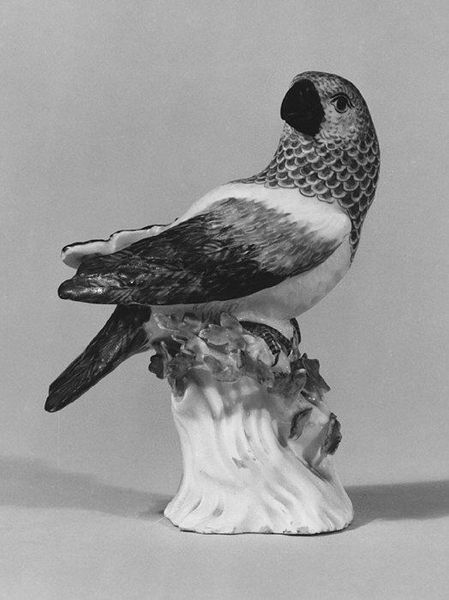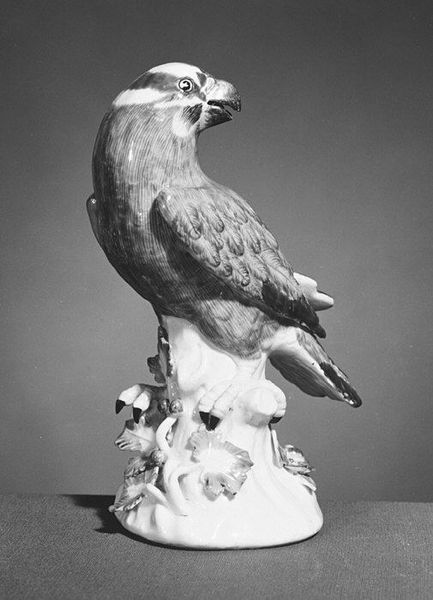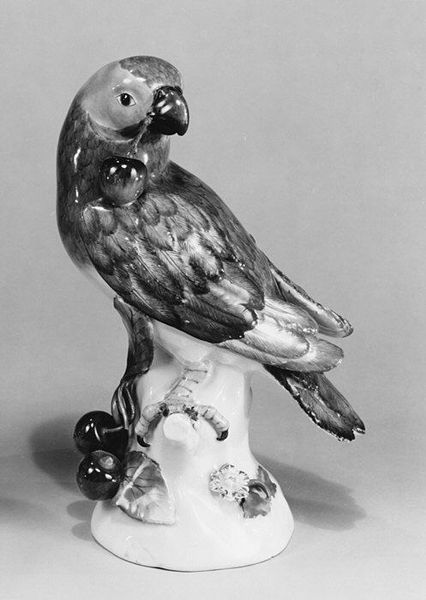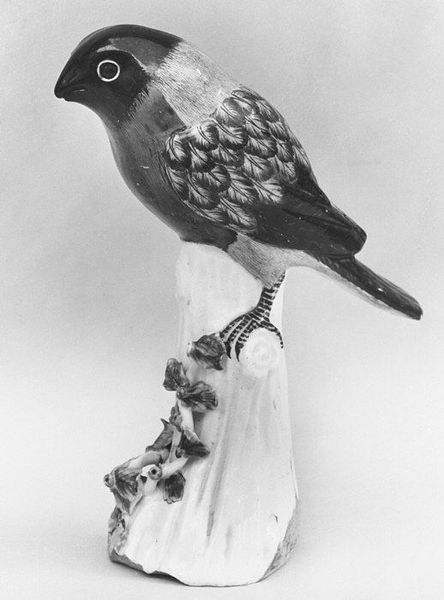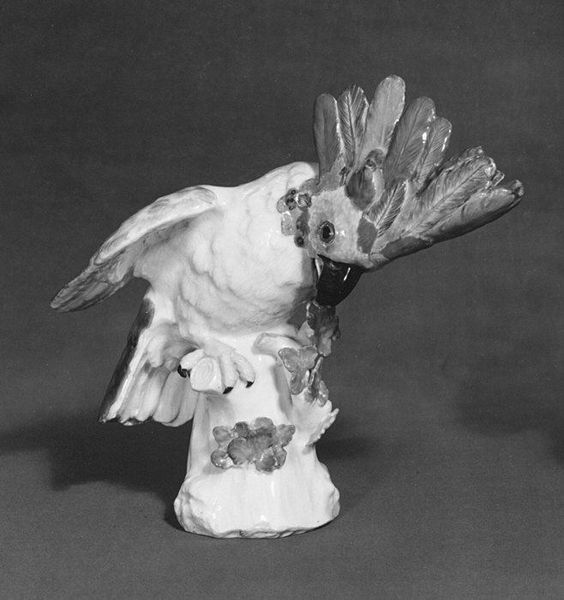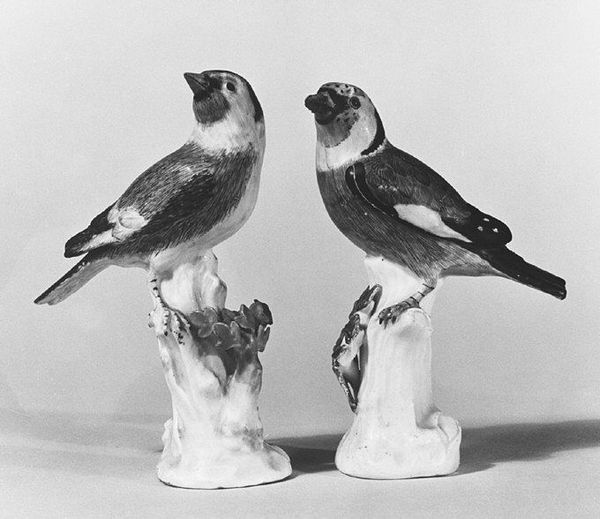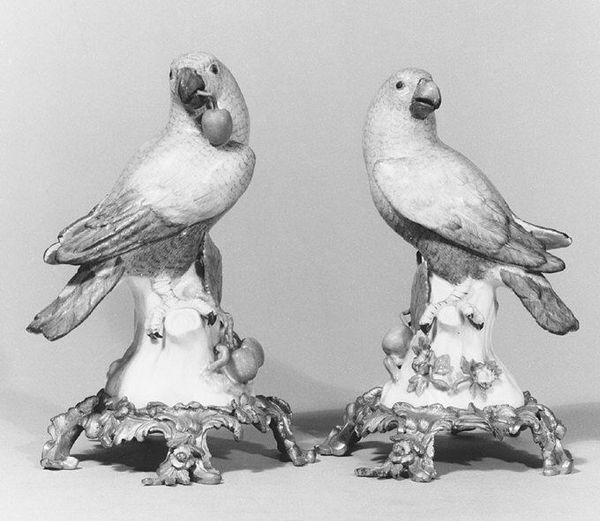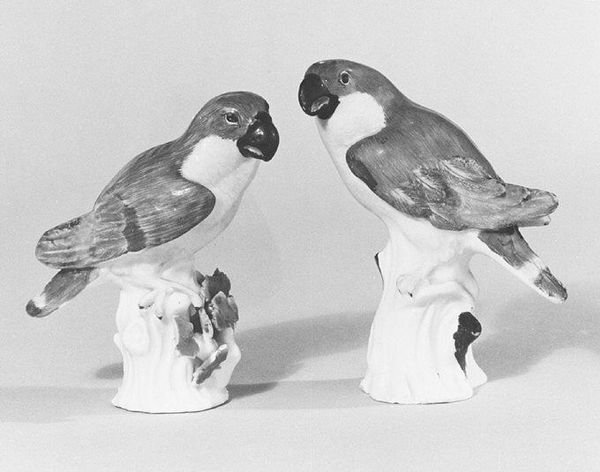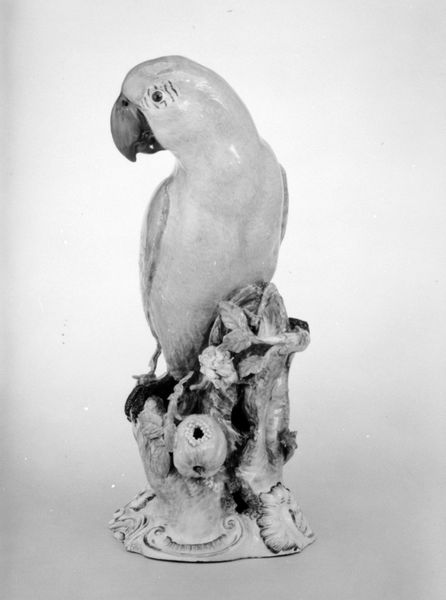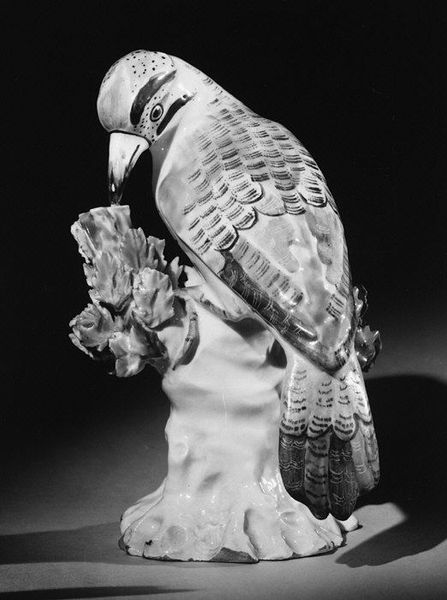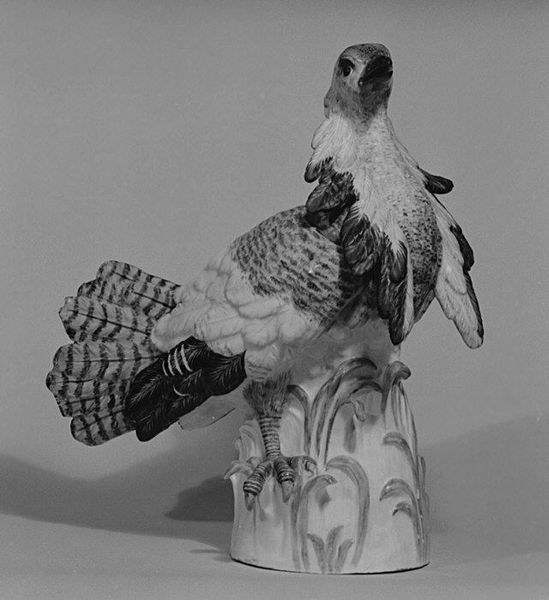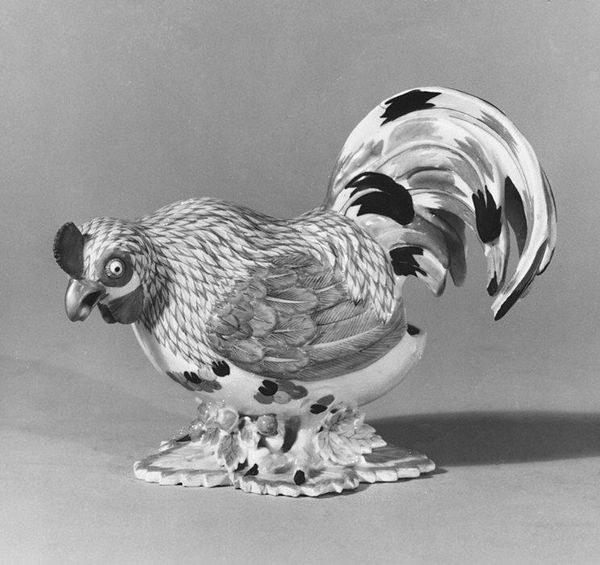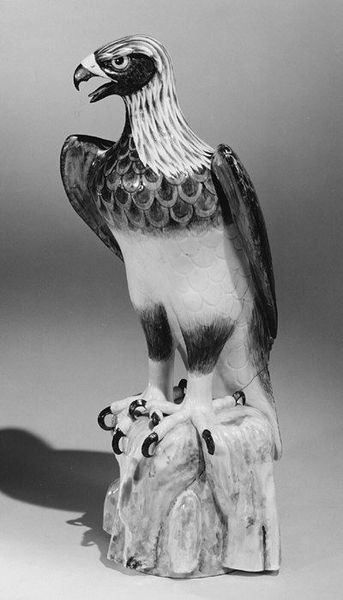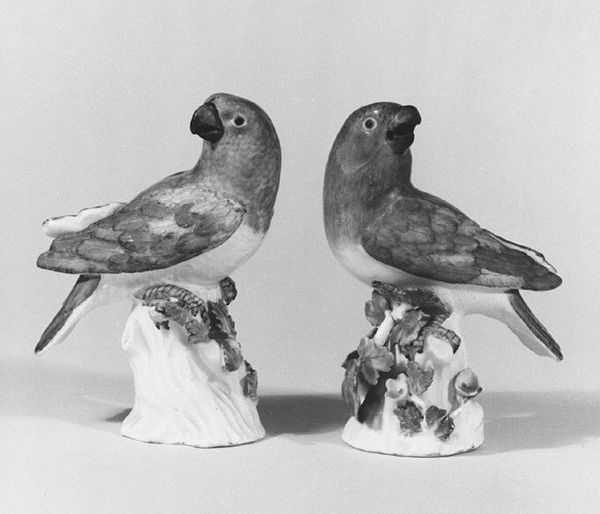
ceramic, porcelain, sculpture
#
sculpture
#
ceramic
#
porcelain
#
figuration
#
sculpture
#
decorative-art
#
rococo
Dimensions: Height: 9 in. (22.9 cm)
Copyright: Public Domain
This delightful pigeon was made at the Meissen Manufactory, likely in the 18th century, from hard-paste porcelain. Porcelain, often called ‘white gold,’ was a closely guarded secret, and its production involved alchemical experimentation, industrial processes, and a regimented factory system. Notice the smooth, white surface of the bird, achieved by firing the clay at extremely high temperatures. The overglaze painting—those crisp black markings—required further firings, each carrying a risk. These processes demanded incredible skill and division of labor. One artisan would model the form, another cast it, a third would paint the details, with different specialists for each color. It’s easy to admire this pigeon as a symbol of aristocratic taste, but remember the many hands and hours that went into its creation. Appreciating the art of making allows us to understand the broader context of art, labor, and consumption.
Comments
No comments
Be the first to comment and join the conversation on the ultimate creative platform.
